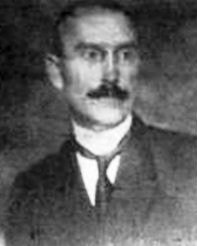Gaszton Gaál
This article includes a list of references, related reading or external links, but its sources remain unclear because it lacks inline citations. (October 2018) |
Gaszton Gaál | |
|---|---|
 | |
| Speaker of the National Assembly of Hungary | |
| In office 12 August 1921 – 16 August 1922 | |
| Preceded by | Iván Rakovszky |
| Succeeded by | Béla Scitovszky |
| Personal details | |
| Born | 30 November 1868 Székesfehérvár, Austria-Hungary |
| Died | 26 October 1932 (aged 63) Balatonboglár, Kingdom of Hungary |
| Political party | Independence Party, National Smallholders' Party, Unity Party, Agrarian Party, FKGP |
| Profession | ornithologist, politician |
Gaszton Gaál de Gyula (or Gaal) (30 November 1868 – 26 October 1932) was a Hungarian landowner, ornithologist and politician, who served as Speaker of the National Assembly of Hungary between 1921 and 1922.
Postings[]
Gaál was a member of the Diet of Hungary session from 1906 to 1910. During the Hungarian Soviet Republic (1919) his lands were nationalized. An arrest warrant issued against him in May, and he went into hiding in Somogy County and Zala County. After the fall of the Soviet regime he was appointed Lord Lieutenant of Somogy County by the government of István Friedrich. He resigned in 1920 from this position.
He became a member of the National Assembly in 1920 with the National Smallholders' Party. After the resignation of István Rakovszky, he was nominated for the post of Speaker of the National Assembly of Hungary. His party merged with the KNEP in 1922 and he joined to the newly formed Unity Party. However, he soon quit over the tax measures planned by the cabinet of István Bethlen and became an independent MP.
He and three other representatives founded the Agrarian Party and became a deputy again. His organisation merged into to the Independent Smallholders, Agrarian Workers and Civic Party (FKGP) in 1930, becoming its second leader.
Death[]
Gaszton Gaál died in Balatonboglár after a short illness.
Works[]
References[]
- 1868 births
- 1932 deaths
- Hungarian ornithologists
- Speakers of the National Assembly of Hungary
- Independent Smallholders, Agrarian Workers and Civic Party politicians
- Hungarian landowners
- 19th-century landowners
- 20th-century landowners
- Hungarian politician stubs

